Blog
Our blog covers a wide range of topics to help support, inspire, and inform members of our community, including those who have been personally impacted by cancer. Use the search filters below to find blog posts on topics that are important to you, from wellness tips, advocacy & policy news, and cancer research findings to stories and insights shared by patients, survivors, and caregivers.
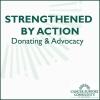
Strengthened by Action: Ways to Donate
Studies show that people who donate money are happier and healthier than those who don’t. Giving activates pleasure centers in the brain that adds to a person’s self-esteem, sense of purpose, overall happiness and physical health, regardless of income level.

A Young Adult Non-Hodgkin Lymphoma Survivor Shares Her Story
As a part of September’s National Hodgkin’s Lymphoma Awareness Month, we are sharing the story of Asia Cutforth, an education intern at the Cancer Support Community.

Stage 3 Ovarian Cancer Survivor Helps Cancer Patients Cope with Lifeline
Marcia Donziger, a 20-year cancer survivor, talks about how her own and her friends' cancer journeys led to the creation of MyLifeLine.org. MyLifeLine offers patients a way to connect with their loved ones through a free, private personal webpage to keep family and friends informed about how they are doing.

Coping With Long Hospital Stays
Hospitals can bring about anxiety, fear, or curiosity, so staying in a hospital for long-periods of time is difficult for most people. If you do have to be in a hospital for an extended period of time like my mother did when she was diagnosed with colon cancer three years ago, here are a few tips on how to handle those long hospital stays:

Social Security Disability Benefits and Cancer
If you have been diagnosed with cancer, you may be wondering if you’ll qualify for Social Security disability benefits. Unfortunately, the answer may not be a simple yes or no. The Social Security Administration (SSA) has different eligibility criteria for each applicant.
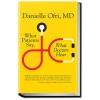
What Patients Say, What Doctors Hear
Danielle Ofri is an internist at Bellevue Hospital, an associate professor of medicine at NYU, and editor in chief of the Bellevue Literary Review. Her latest book is What Patients Say, What Doctors Hear. Doctor-patient communication is a two-way highway of information, with each person endeavoring to convey information to the other. But there can be numerous roadblocks and detours, as anyone who has been party to our medical system can attest.
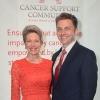
A Night with Marin Mazzie and Jason Danieley
On May 31 st, I had the absolute pleasure of watching Marin Mazzie sing these words during “Broadway & Beyond,” a night of powerhouse musical performances by Mazzie and her husband Jason Danieley.

Still Defying the Odds after 20 Years
Paul Kraus had already proven himself to be a survivor by the time he was diagnosed with malignant mesothelioma in 1997. Born in a Nazi labor camp in 1944, Paul survived a cross-country escape to Poland with his mother and older brother when he was just a few months old. Four years later, he survived the ocean voyage aboard a refugee ship to Australia where the family started a new life and where he has lived ever since. Unfortunately, that emigration to one of world’s top producers of asbestos during the height of the mineral’s worldwide popularity probably also led to his unexpected diagnosis of mesothelioma almost 50 years later.
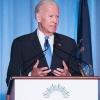
Brain Tumor Awareness Month: Cancer Research and the Bidens
In 2013, Beau Biden, former Vice President Joe Biden’s son, was diagnosed with stage 4 glioblastoma. Beau was the attorney general of Delaware and served his country overseas in Iraq. As Joe put it, “Beau Biden was, quite simply, the finest man any of us have ever known.” In May 2015, Beau passed away at the age of 46. Since then, Joe Biden has dedicated his life to making strides in cancer research, diagnosis, treatment, and care.
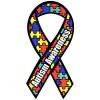
Is there a Genetic Link between Autism and Cancer?
Dozens of genes have been linked to both autism and cancer. For example, one form of autism is caused by a mutation in the PTEN gene – this same mutation is also linked to head, neck, thyroid, prostate, skin, breast, and lung cancer, and much more.